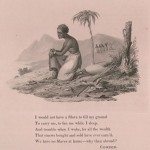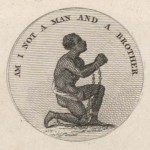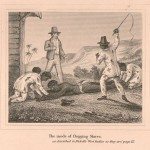Abolition of the Slave Trade and Slavery
The 1790s and early 1800s were difficult years for the anti-slavery campaign. The French Revolution changed the political climate. The terror, execution of the King Louis XVI and the outbreak of war between Britain and France meant that abolitionism, with its emphasis on human rights, could easily be linked with demands for political radicalism and support for an enemy state. Campaigners seemed to be dangerous and unpatriotic. The 1791 Priestley Riots severely weakened the campaign in the West Midlands. Priestley, the philosopher of anti-slavery and political liberty was forced to flee Birmingham after the destruction of his house, books and laboratory and, in 1794, depart as a refugee for the United States.
Nevertheless, significant numbers of British people remained committed to the cause including political conservatives like William Wilberforce MP and Prime Minister William Pitt. In opposition to the economic interests of many within their social class, they secured the abolition of the slave trade in the British Empire in 1807. Slavery remained intact however, but many abolitionists hoped that it would wither away once the plantation system was deprived of its injection of new slaves from Africa. This did not happen quickly. In the 1820s the campaign revived, focusing on the removal of slavery itself. Once again activists in the West Midlands were prominent.
The Female Society for the Relief of British Negro Slaves was founded in 1825. Amongst the supporters were descendants of the Lunar men. Members of the Committee included Mrs Moilliet, the daughter of James Keir, Miss Galton, Mrs Schimmelpenninck (Mary Anne Galton), Mrs Sneyd Edgeworth and Miss Wedgwood. The Society aimed to encourage a “lively sense of the injustice, inhumanity and impiety of our present system of Colonial Slavery” and used its financial resources to support campaigning activities. Amongst other things it reproduced prints and republished newspaper articles drawing attention to its evils of slavery. Joseph Sturge, a Birmingham businessman was also an important abolitionist, becoming Secretary of the local Anti-slavery Society in 1826. Sturge’s impact was most apparent after 1836 when he visited the Caribbean and campaigned for improved labour conditions, after the abolition of slavery in 1833. The West Midlands had developed an important campaigning tradition owed its initial origins to radical members of the Lunar Society.
« Previous in this sectionContinue browsing this section
 The Lunar Society and the Anti-slavery Debate
The Lunar Society and the Anti-slavery Debate
 Anti-slavery and the Midlands
Anti-slavery and the Midlands
 Anti-slavery: Poetry, Images and Ideas
Anti-slavery: Poetry, Images and Ideas
 Commerce, Slavery and Anti-slavery
Commerce, Slavery and Anti-slavery
 Abolition of the Slave Trade and Slavery
Abolition of the Slave Trade and Slavery





